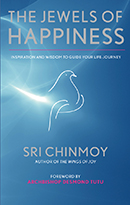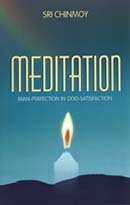Every day there is only
One thing to learn:
How to be honestly happy.
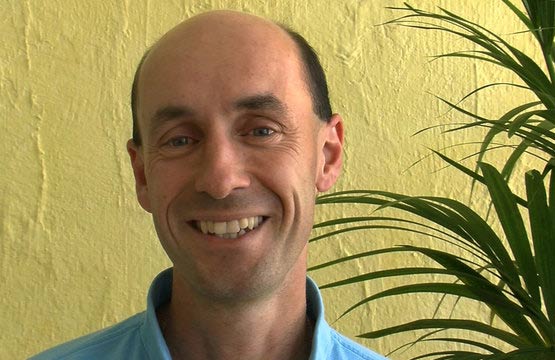
Not needing anything on the outside…
Pranam Horlbeck from Zurich has been meditating since his teenage years. In this interview, and in the above video, he shares his evolving attitude towards happiness.
What does happiness mean to you?
Happiness seems to me to be a state of not needing anything on the outside but only to feel closeness to the divine within ourselves. It took me a while to reach this realisation.
I was always looking for true happiness and as I tried all the things that society suggested, but did not get the result I was hoping for. For example, I remember I had a desire to buy a snooker table. My friends and I managed to import one from Ireland, and I felt now I will be happy. But as ill-luck would have it after quite a short time this happiness again left me, so I had to find another way.
Then I came across meditation. Initially the goal of my friends and I was to become millionaires by the age of 30, and retire to Ireland to meditate. But later I realised that you can also be happy and still be in the world.
What makes me happy ?
I am very fortunate to be able to do a lot of different disciplines. One thing I started doing was running a lot of long distances – even longer than the marathon and often for many days at a time. I finished a 700 Mile race, which was very special as it taught me so many things about my own inner potential.
I also love singing spiritual songs – especially in a group. I am currently in a group which is trying to sing all 22,000 of Sri Chinmoy’s songs. Three times a year, we learn around 250 songs and then sing them for our fellow meditation students – that’s around 750 songs a year, which means we should be finished singing them all in 2031! It is definitely a lot of discipline learning all those songs, but it gives me tremendous Joy and fulfilment.
But for me – going to New York, and sitting in meditation in our meditation-garden where my meditation teacher Sri Chinmoy used to meditate with us is probably the happiest moment.
I also love playing Golf – I could write a lot about being unhappy while playing Golf and learning many spiritual lessons about surrender and just being happy no matter what the result!
By making myself really, truly happy, automatically a love of humanity and a wish to be of service to humanity springs up from inside.
What gives you most hope for the future?
I definitely feel the World is progressing. Young people seem to be much more aware and conscious then we were when we were young. For example, I give a lot of meditation workshops, and the new people who come to our meditation classes or join our meditation path are so inspiring, humble, and inwardly deep.
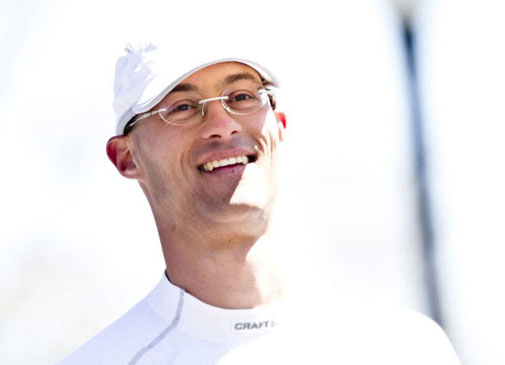
Happiness changes my fate
Patanga Cordeiro lives in São Paulo, Brazil, and works as an assistant at a Court of Justice. He enjoys running, triathlons, singing, and in his spare time translates inspiring poems and prose.
I like to teach basic classes on meditation techniques, and a few days ago the class I was teaching spontaneously came to the subject of making choices. It had to do with something I read on one of Sri Chinmoy´s books. Many times we are facing two opposite courses of action, each with its possibilities of rewards and different levels of fulfilment. As I can recollect from what I read, he mentioned that sometimes the inner voice gives us a red light (stop), while the outer happenings give us a green light (go), or vice-versa. So I questioned the students:
“Sometimes, we get green light from the inner and the outer – in this case, it is easy, we just go! Sometimes we get red from both – also easy, we just stop. But, what happens if we get opposing messages?”
That made me and also them think a bit. One young man had the same thought as I and got right to the point: “We follow the inner!” Everybody was agreeing.
Teacher-like, I thought I might expand on his answer a little. So I came up with this: “It depends. It depends on what you want. If you want to become a multimillionaire, then maybe you won´t have time to fulfill your inner urges – there is so much you need to do on the outside. But if we want to find true happiness, peaceful happiness, the joy that is self-created and does not depend on outer circumstances, then of course we will have to listen to the inner voice.”
But then comes the tricky part, as many people attending class noticed. We also need to maintain an outer standard, we have to fulfill our responsibilities with job, family, studies, etc. So are we not leaving that behind? Is there not a way to achieve both? Modern spirituality says that the integral man is the true man – he does not shun his responsibilities, and he does not need to sacrifice his own self.
Then, as we talked about it, I remembered one of my experiences when I was still in school. I think it might be worthwhile to share here too.
My personal experience
In Brazil, to make a simplification, after high school you: either you can pay for university tuition, or you take a year off, go to a preparatory course and study real hard for a once-a-year exam, in order to enter the public universities (which are free of charge and also give better degrees). If you don´t make it, you can try again next year.
After high school I was working on six-hour shifts, and decided to try to go to university to get a degree and a better job in the future. So I found the cheapest possible university, (plus my job would pay half of the monthly fees) and started to study. However, after some nine months, I decided I wanted to try the test for the public and free university.
At that point, there were many things that I used to do in my spare time that gave me real joy and fulfilment – music, translation of poems, teaching meditation (yes, I had just started then). So I did not want to give up on all that to spend every evening studying and watching classes. What I did is that I registered for a one-month preparatory course! It was super condensed. But even if for one month, it would take away all the time I used to do the things that made me real happy. So I only went to the main classes (for me that was mathematics) and some occasional others. To make up, I would try to study on the bus home, on afternoon breaks at work, etc. And whenever I felt I had something more important to do (when I felt some happiness was inspiring me), I would just forget about studying and do that. I would go out running, etc.
On the day of the exam, I went by bicycle there and, even as I chained it to a lamp-post, I felt much joy. As I walked towards the building, there was even more happiness. It was strong, wholesome and yet very subtle. It was like a little me was dancing inside my heart. I sat on the table like a baby playing with his colourful toys. The exam went smoothly, and I was one of the first to finish and leave the room. But this is not all.
It takes quite a few days to know if you passed the exam or not. (By the way, the odds for my exam were about 1 to 19 – one person gets in, the other 18 do not). I was not expecting to be approved, because I studied so little, but still I was a little hopeful, and anyway a little anxious to know if I did or did not.
A few days later I get a phone call from the preparatory course I took. (They get the results first, somehow.) The lady said “Congratulations! YOU GOT THE FIRST PLACE! We want to make an interview with you to show on the TV.” I was stunned. First place? But how? How could it be possible? There are so many good students (I was not), so many really bright people (I was not), that studied for many years (I did a half-month, let us say). And I am to have the best score?
As I was never a good student, that was total surprise. It definitely took me some three days to come with an explanation. It was that happiness that guided me. It was the inner voice. It was guiding me to be really myself, to do what I really must do. And, if the less important things had to be waylaid, then that inner voice somehow had found a way to make up for it. Having studied so little and achieving the highest score, there was no way I could convince myself that “I was smart” or anything. It was something else!
So this little miracle showed me how we can depend on happiness as our life-compass.
How I wish I would always listen to my inner voice!
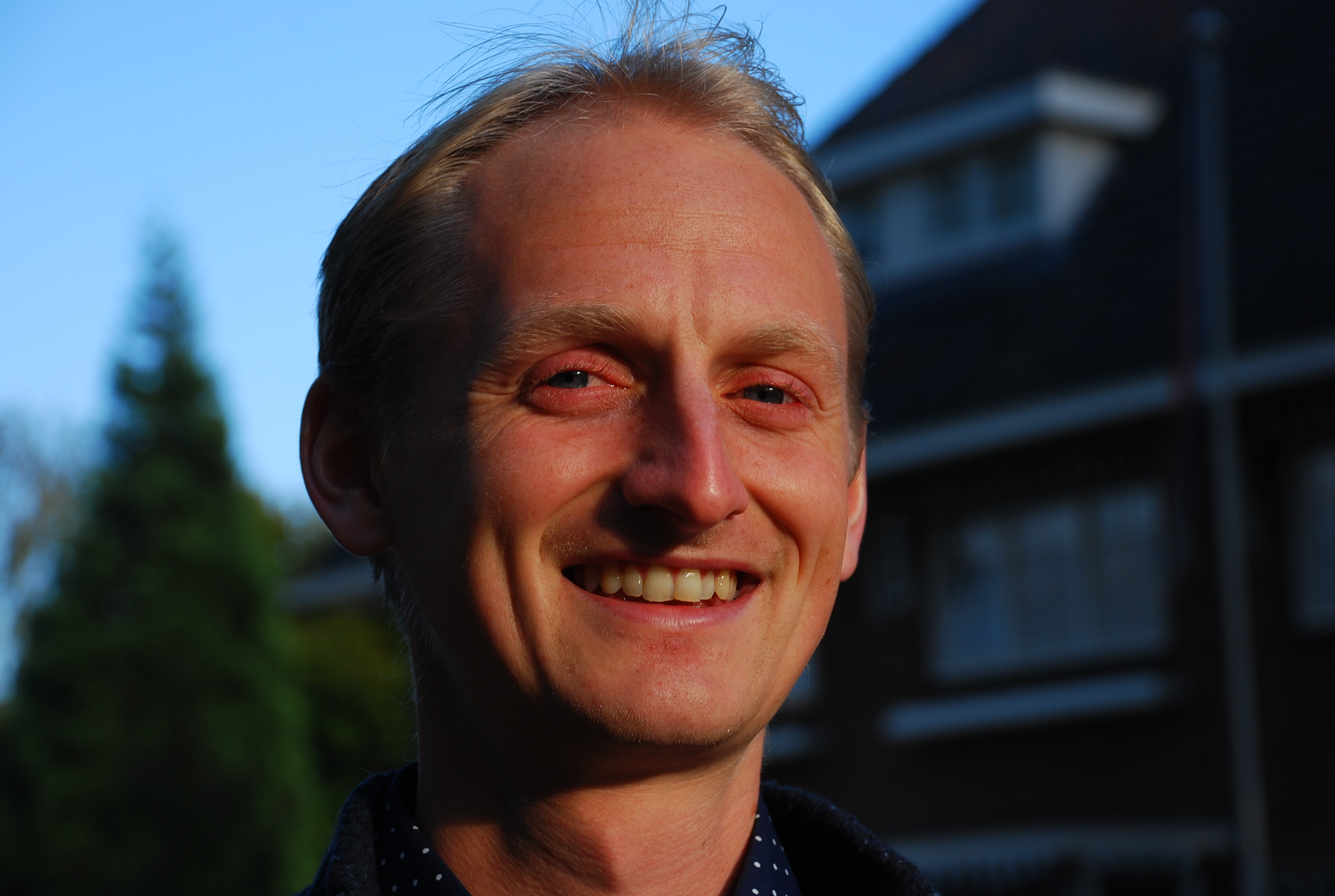
A spontaneous feeling of gratitude
Abhinabha Tangerman is a freelance journalist based in Amsterdam, The Netherlands. Apart from contributing quite a few articles to the Jewels of Happiness website, he writes for Dutch newspapers and magazines on a variety of subjects. Abhinabha likes to meditate, play guitar, write poetry and run marathons. He gives regular meditation classes and enjoys sharing what meditation has taught him about happiness with the public.
1. How would you define happiness?
To me the perfect definition of happiness is gratitude. When I’m really happy there’s often a spontaneous feeling of gratitude that accompanies it. In those moments I’m just amazed at how beautiful life is, despite the hardships that there may be. I think life is a great cosmic adventure and I’m just grateful to be a part of it.
2. Describe a moment in your life when you felt really happy.
As a matter of fact, I was feeling really happy this morning. I was on my bicycle, riding the streets of Amsterdam. It was a real ‘Indian Summer’ day, just on the brink of autumn – which is my favourite season. Everything looked so beautiful: the trees, the blue sky, the canals, the houses. I felt totally one with my environment and I was overwhelmed with a feeling of happiness and gratitude. I should also mention that I had a good meditation this morning. That usually helps a lot.
Other times when I have felt really happy are when I have finished a project that I worked really hard on. In the process I try not to be too attached to the results, but when the project is successful, I am really elated. Many of those happy moments have come when I was busy organizing the Peace Run, a torch relay for peace around the world founded by Sri Chinmoy.
I also feel very, very happy at the end of running races – which I do quite a lot – when I cross the finish line knowing I have given it my all. I think that’s why people love running long-distance races, just because that tremendous feeling of joy you get at the end.
3. Whenever you feel unhappy, is there a particular thing you do in order to feel happy again?
I have found my daily prayer and meditation to be the best remedy against unhappiness. Singing spiritual songs or chanting a mantra also works wonders for me. Going for a run also pushes my happiness-buttons in a big way.
4. Is there any person or historical figure that stands out as a role model for you in terms of achieving human happiness?
Thomas Jefferson comes to mind. He was a real ‘renaissance man’, highly developed in many fields: politics, architecture, art, science, philosophy, gardening, you name it. At heart he was a really spiritual person. Reading ‘Light and Liberty’, a collection of his writings edited by Eric Petersen, I was simply overwhelmed by his wisdom, nobility and grace. He truly knew the secrets of a happy and fulfilling life.
As a contemporary happy person Neil Young comes to mind – mostly because I just finished reading his autobiography. What a great guy! Not only a great musician, but also a real idealist, humanitarian, inventor, writer and a genuinely loving and compassionate person. There is an overriding sense of gratitude in his writing, which makes me think he is a genuinely happy person.
5. How would you go about making the world a happier place?
I think the best way to make the world happy is to make yourself happy first. Happiness is contagious, in a good way. If you are happy, you’re like a flower spreading happiness-fragrance. My spiritual teacher Sri Chinmoy wrote, “Happiness shared is maximized.” It also helps to be kind and compassionate to others. Who knows, you may inspire somebody to be a better person. I think a better world comes from better people.
6. Was there a particular habit or regimen you introduced into your life that has made you happier? Please share it with us!
Absolutely! For me happiness-medicine number one is my spiritual practice. I pray and meditate and also I sing spiritual songs every day. I can honestly say these things have changed my life in a big way. Through my prayer and meditation I’ve been able to discover a source inside me where there is spontaneous and enduring happiness. It seems nowadays more and more people are trying this approach, seeking their source of peace and happiness by going within. Oh, and my daily run is also a great contributor to my happiness. Did I mention that already?
7. What inspires you most about the future?
I think the future is bright. I really do. It’s pretty obvious that a few things need to change in the world for everyone to enjoy an atmosphere of peace and happiness, but I think we’re taking the right steps by giving spirituality a chance. We have to change ourselves first – I believe that’s really the first step. In that light it’s very hopeful that more and more people are trying to discover their own inner source of happiness, which I like to call the soul. I’ve been giving meditation classes for over a decade and I can see the interest is growing. So I’m an optimist. I think the world needs hope and optimism.
8. Which personal qualities do you think are most important in obtaining happiness?
I think Sri Chinmoy summed it up very aptly when he wrote: “Perfect happiness is enthusiasm minus expectation.” You need to have enthusiasm, to be positive and dynamic, but at the same time you need a kind of never-give-up attitude. So even when things don’t go the way you wanted, you don’t give up doing the right thing. When you expect a certain result, you prevent life from springing its delightful surprises on you.
9. If you had one wish for the world, what would it be?
I would wish for all human beings to have real peace inside them, and to feel that we are all part of a oneness-world-family. If you are at peace with yourself, you’re not inclined to find fault with others or with yourself. I think many, if not all world-problems can be solved that way.
10. What was your most important life decision in terms of your own personal happiness?
My decision to lead a spiritual life. When I was twenty years old I became a member of the Sri Chinmoy Centre. I started to follow a spiritual philosophy of daily meditation, physical exercise and a vegetarian diet. After a while I noticed all my problems, frustrations and feelings of unhappiness just faded away. I give most credit to meditation for this. I think it’s the real secret to a happy life.
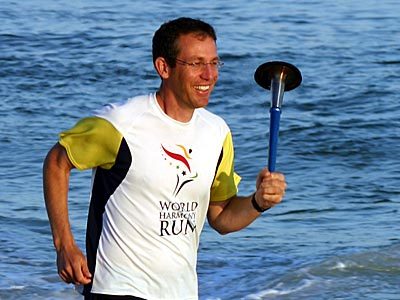
A sincere and abiding love of happiness
Salil Wilson from Australia is the Executive Director of the Sri Chinmoy Oneness-Home Peace Run, the world’s largest torch relay for peace. He travels every year to many countries as part of the international team of runners that have carried the Peace Torch to over 140 different countries.
How would you define happiness?
A deep sense of contentment, satisfaction and well being.
What was your first experience of happiness?
My first experience of being happy, and aware of it, was as a young child sitting outside in the sun on the warm concrete of our driveway and feeling happy. Simple but true.
Whenever you feel unhappy, is there a particular thing you do in order to feel happy again?
I try to get back in touch with my heart by either meditating, doing exercise like running, immersing myself in nature, concentrating on my breath or just being with happy friends.
How would you go about making the world a happier place?
Firstly, by being the happiest person I can be. If I’m not happy, then I can’t really hope to inspire others to be happy.
Are there particular habits or regimens you have that make you happier?
A regular practice of meditation, prayer, exercise and service. Having a regular discipline in your life helps in so many ways.
What inspires you most about the future?
The potential for wonderful things to happen. On the Peace Run, you meet so many different people from all countries and cultures, and you realise that we all want the same essential things. It gives you a very optimistic outlook for the future.
Which personal qualities do you think are most important in obtaining happiness?
A sincere and abiding love of happiness. If you truly value happiness, you’ll do whatever is necessary to achieve it.
What was your most important life decision in terms of your own personal happiness?
To live my life according to my inner dictates.
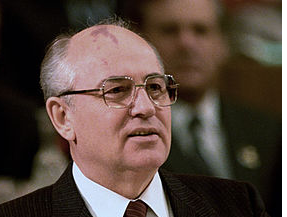
Quotes on peace, politics and nature from President Gorbachev
Mikhail Gorbachev is one of the most important figures of recent times, a man who literally changed the world. Here are some stirring quotes from his memoirs and other sources:
On politics and peace:
There is a widespread view that, in politics, inner motives are irrelevant in the assessment of the objective results. Not true. I know from experience that motives, particularly those that are improper, invariably affect the results.
Then and now i happen to read ‘profound’ arguments that violence is not only justified but even necessary in the transition to a new society, It goes without saying that during revolutions bloodshed is, indeed, often impossible to avoid. But to look upon violence as a panacea, to encourage it in the name of some allegedly higher aims, that is to accept the slaughter of entire families, villages, peoples? No, that is inadmissible.
We realized it was vital to correct the distorted ideas we had about other nations…A country can develop its full potential only by interacting with other societies, yet without giving up its own identity.
Peace from a position of force is inherently weak, whatever people say about it. It is in the nature of such peace to be founded upon confrontation – hidden or open – on the permanent danger of flare-ups, and the temptation to use force. For centuries, mankind has been obliged to accept this truly bad peace. We cannot allow ourselves to continue like that anymore.
It goes without saying that the events in Hungary and Czechoslovakia and later in Bulgaria and Romania caused us great concern. However, not once did we contemplate the possibility of going back on the fundamental principles of the new political thinking – freedom of choice and non-interference in other countries’ domestic affairs.
Lack of spirituality and anti-intellectualism are terrible dangers. But pure intellect that is deprived of a moral basis is just as threatening in today’s world.
On growing up:
When our contemporary advocates of peasants’ happiness refer to the ‘golden age’ of the Russian countryside I honestly do not understand what they mean. Either these people do not know anything at all or they are deliberately misguiding others – or else their memory has totally failed them….(My grandfather’s) favourite joke was ‘The most important thing for a man are shoes that don’t pinch his feet’. Actually, it wasn’t just a joke.
On the beauty of nature:
In times of crisis I sought out nature to restore my spirits…the oneness with nature was so strong that we seemed to inhabit a different world. No words can express that feeling. Probably a true believer experiences the same soaring of the spirit in church. But then, to me, nature is also a church…
My character and my entire perception of the world were to a large extent shaped by nature, and the awareness that not only do I exist in it, but that nature lives inside me.
On looking back:
Memory works in mysterious ways – it retains mainly the best of what happened in life – even if there was not much of it.
For me, there has never been a gulf between my conscience and my inner convictions…I, like everyone else, made mistakes, miscalculated. But my conscience is at ease. Any my thoughts and ideas are exactly as they used to be.
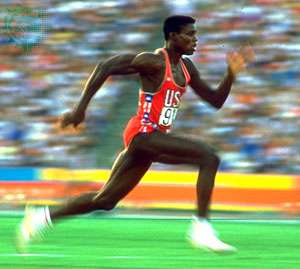
Inspiration on running and life from Carl Lewis
Carl Lewis is one of the all time sporting greats, winning a colossal nine gold medals (and one silver) in four different Olympic games. His autobiography, Inside Track, written in 1990 in collaboration with Pulitzer Prize winning author Jeffrey Marx, still stands out as an inspirational read amidst the volumes of sports autobiographies that are put out every year. We have compiled here a few uplifting passages from that book and from his 1996 diary, One More Victory Lap:
On his childhood athletic training:
I was small for my age, the runt of the family…(my parents) were toughest on me, tougher then they ever were on Mack, Cleve or Carol (his siblings)…if Carol was on the track for one hour, I would have to be there for two.
Back then I was never sure why I was being pushed. But now I have a pretty good idea. My parents knew how much it hurt me to be the worst in the family, how much I wanted to succeed, and they spotted some talent in me before anyone else did, including myself. They thought that if they pushed me, they could help me develop that talent.
Inspiration from the legendary Jesse Owens:
I do remember one thing Owens said to me: “Have fun.” He wanted us to know that having fun was the most important thing we could do.
Finally I won a local Jesse Owens meet in Philadelphia, placing first in a 1973 long jump competition for twelve year olds. Once again Owens had come to town for the meet named after him. He wandered by, saw how much smaller I was then the other kids my age. and told them “You should learn a lesson from this smaller guy. He was determined and he tried really hard.” For once, I felt good about what I was doing.
On one of his first competition trips to Europe, aged 19:
It turned out that the best thing about Florence was not the money, but my room assignment. I was paired with Steve Williams, my childhood idol. I couldn’t believe it. and I was in the same room as my idol, the guy I used to pretend to be in my backyard track meets…for two days I asked Steve about every race he had ever been in – at least it must have seemed that way to him – and he patiently answered all my questions. Hearing his stories made the trip worthwhile. I never would have be admitted this to the meet promoter, but I probably would have gone to Italy for nothing if I had known who my roommate was going to be.
Other inspirational quotes from Inside Track:
A lot of times I am criticized for the things I say in public. It would be a lot easier for me if i did not say some of the things I believe. But if something is right and people need to know about it, I say it.
I learned at a young age the way Martin Luther King Jr stressed the importance of sacrifice. If you live without sacrifice – on a small or big level, in your professional or personal life, at home or in public, then you have missed a very important part of life.
A closed mind blocks the growth of spiritual feelings. There should be no limits on spiritual feelings.
At the beginning of 1996, the year he won his ninth gold medal at the age of 35:
I will ultimately judge the outcome by answering this one question: Did I do everything possible to represent myself to the best of my abilities at this stage of my life? That does not require me to match any of my past accomplishments. T only requires me to be the best I can be right now.
During this year, Carl Lewis kept a diary, which would later be published as One More Victory Lap. here are some inspirational passages:
Sometimes a symbolic gesture is enough to make a difference. and why not? There’s certainly more than enough negative energy floating around in our world. Why not each out for something positive and embrace it when we have the opportunity?
People ask me all the time: whats it like at the Olympics to stand on that podium with a gold medal around your neck? Well I believe its the same as anyone setting a goal and achieving it. anybody can experience the intensity of that emotional high – its just that more people share in the celebration of it when you’re talking about the Olympics.
My friend Sri Chinmoy, the spiritual teacher, called from New York to wish me well in the trials. He also offered this advice ” Find your own time to be quiet. There will be so many activities, so many distractions, so many people talking around you and about you. You must not allow others to drain your energy heart.” It was vintage Sri Chinmoy. His thoughts are so often connected straight to the heart. They flow from the heart. They lead to the heart. In closing, Sri Chinmoy suggested I find one hour a day to be alone in silence. No television No telephone. No teammates or friends. Just me and my thoughts and a chance to connect to a higher power. (Carl is one of the guest readers of the audiobook version of The Jewels of Happiness by Sri Chinmoy, reading the chapter on Self-Transcendence)
A friend has been telling me…you need to pull out some old pictures from when you were winning everyting…so i finally did that. I went into a storage closet and found an assortment of old pictures. Also some awards. Its almost symbolic, what icve done over the years with pictured and awards, because ive packed most of them away, oout of site, out of mind. Ive never wanted to spend too much time dwelling on the past.
But something about seeing those old pictures again put me totally at ease. It all looked so natural, like I was doing what I was born to do, and enjoying it. There was never any doubt on my face. Just power and confidence and joy. ike doing what i was born to do.
And those pictures made me want to feel that again.
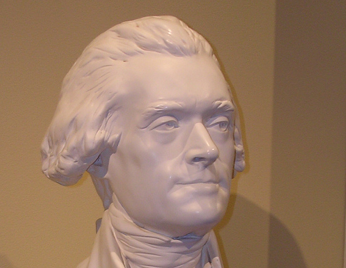
10 Practical Life Lessons from Thomas Jefferson
In 1825, Thomas Jefferson was asked to write some words of advice for the newly born grandson of a close friend of his; the child was named Thomas Jefferson Smith after the President, as a token of affection.
In his response Jefferson gave some of his dearly-held principles on how to live life to the full, all of which still hold true today. In his letter he responded as follows:
Your affectionate and excellent father has requested that I should address to you something which might possibly have a favourable influence on the course of life you have to run, and I too, as a namesake, feel an interest in that course.
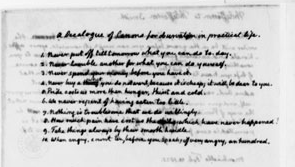 Jefferson ended the letter by writing what he called “A Decalogue of Canons for Observation in Practical Life.” on the other side of the page:
Jefferson ended the letter by writing what he called “A Decalogue of Canons for Observation in Practical Life.” on the other side of the page:
- Never put off till tomorrow what you can do to-day.
- Never trouble another for what you can do yourself.
- Never spend your money before you have it.
- Never buy what you do not want, because it is cheap; it will be dear to you.
- Pride costs us more than hunger, thirst and cold.
- We never repent of having eaten too little.
- Nothing is troublesome that we do willingly.
- How much pain have cost us the evils which have never happened.
- Take things always by their smooth handle.
- When angry, count ten, before you speak; if very angry, an hundred.
It seems that Jefferson put quite a bit of thought into these principles throughout his life; he also gave a very similar list of twelve to his granddaughter. Some of them are his own creation, others he came across from his extensive reading.
The last one in particular, has ended up in many a list of Jefferson quotations. Regarding the eighth one, it is interesting to hear in what he has to say in an 1816 letter to John Adams:
You ask if I would agree to live my 70. or rather 73. years over again? To which I say Yea. I think with you that it is a good world on the whole, that it has been framed on a principle of benevolence, and more pleasure than pain dealt out to us.
There are indeed (who might say Nay) gloomy and hypochondriac minds, inhabitants of diseased bodies, disgusted with the present, and despairing of the future; always counting that the worst will happen, because it may happen. To these I say: How much pain have cost us the evils which have never happened?
Jefferson was 82 years old when he wrote this letter, and must have known his days on earth were numbered – in the letter he writes ‘his letter will, to you, be as one from the dead. The writer will be in the grave before you can weigh its counsels.’ Indeed, Thomas Jefferson passed away the following year on July 4th, the same day as John Adams, and 50 years to the day after the Declaration of Independence was signed. But he includes in the letter this very affectionate remark:
And if to the dead it is permitted to care for the things of this world, every action of your life will be under my regard. Farewell.
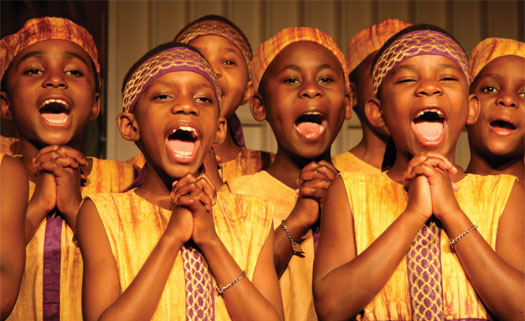
Five simple secrets to staying young at heart
If happiness would have an age it would probably be somewhere between four and seven years old. Happiness is a child’s natural possession. Unfortunately it is often an adult’s lost possession. The older we become the harder it seems to be to remain happy.
But perhaps we take age too seriously. As Sri Chinmoy, author of the Jewels of Happiness and an expert on the art of being happy, often said: “Age is in the mind and not in the heart.” Although our physical body may be advanced in years, we can easily be young in heart and spirit. And the younger we feel, the closer we are to the source of happiness inside us. Here are 5 simple ways to help you feel young:
1. Smile!
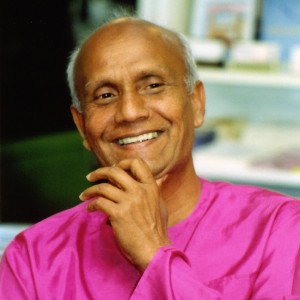 “Smiling makes the mind young,” Sri Chinmoy wrote. A smile is one of the most effective shortcuts to feeling young. Most adults smile about 20 times a day, but children are champion smilers with an average of 400 smiles a day. The power of a smile is considerable. Scientific research has discovered that smiling boosts our immune system, lowers blood pressure and releases powerful endorphins that counter stress. It stimulates award-centers in the brain similar to eating chocolate or receiving a large sum of money. In fact, British scientists have found that one smile can trigger the same reaction in the brain as receiving 16,000 British pounds (about $25,000 or €20,000) does. Perhaps that’s why we speak about a ‘million dollar smile’.
“Smiling makes the mind young,” Sri Chinmoy wrote. A smile is one of the most effective shortcuts to feeling young. Most adults smile about 20 times a day, but children are champion smilers with an average of 400 smiles a day. The power of a smile is considerable. Scientific research has discovered that smiling boosts our immune system, lowers blood pressure and releases powerful endorphins that counter stress. It stimulates award-centers in the brain similar to eating chocolate or receiving a large sum of money. In fact, British scientists have found that one smile can trigger the same reaction in the brain as receiving 16,000 British pounds (about $25,000 or €20,000) does. Perhaps that’s why we speak about a ‘million dollar smile’.
If you’re not a regular smiler you can practice by going through the motions in front of a mirror a few times a day and trying to make your smile as genuine as possible. Visualizing a happy memory or someone you love helps to activate the smiling muscles as well.
2. Sing!
 Just like smiling, singing is another simple activity that works wonders for our happiness, health and wellbeing – all powerful parameters to feeling young at heart. People who sing regularly, either by themselves or in a choir, report feelings of joy, elation and cheerfulness.
Just like smiling, singing is another simple activity that works wonders for our happiness, health and wellbeing – all powerful parameters to feeling young at heart. People who sing regularly, either by themselves or in a choir, report feelings of joy, elation and cheerfulness.
Science has also drawn the conclusion that singing is a good thing to do, as it trains our lungs to breathe better, boosts our immune system and reduces stress. A Swedish study found that singing together, like in a choir, tends to synchronize the heartbeats of the singers, which results in a calming effect on body and mind comparable to yoga.
Like smiling singing can be done anyplace and anytime. Why save your voice only for the shower? You can sing while walking in the street, driving your car or cycling your bike. Perhaps you want to keep your voice down a little in public places, but soft singing can give the same joy as singing out loud does.
3. Exercise!
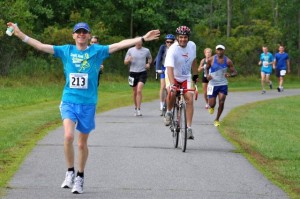 Regular exercise keeps our body fit and also has tremendous benefits on our mental health. Mens sane in corpore sano the Romans said, meaning ‘a healthy mind in a healthy body’. Modern science seems to prove them right. A Canadian study from 1967 proved that people who exercised regularly during a period of four years or more had significantly more energy, patience, humor, ambition and optimism than a control group who had just started an exercise regime. The physically fit group also tended to be friendlier, more exuberant, cheerful and socially pleasant than the control group.
Regular exercise keeps our body fit and also has tremendous benefits on our mental health. Mens sane in corpore sano the Romans said, meaning ‘a healthy mind in a healthy body’. Modern science seems to prove them right. A Canadian study from 1967 proved that people who exercised regularly during a period of four years or more had significantly more energy, patience, humor, ambition and optimism than a control group who had just started an exercise regime. The physically fit group also tended to be friendlier, more exuberant, cheerful and socially pleasant than the control group.
Aside from the psychological benefits, regular exercise has also been shown to turn back the clock and stop aging. In 2009 scientists at the University of Saarlandes in Saarbrücken, Germany studied a group of 104 people and found that 50-year-old adults with a lifetime of strenuous exercise behind them – such as marathon runners – had a biological age that was significantly younger – sometimes decades – than their inactive peers. Exercise showed to have an anti-aging effect on the DNA of the cells. Sri Chinmoy was evidently aware of that when he wrote, “Running makes the body young.”
4. Positive thinking
 “The secret of remaining young is to devour beautiful and powerful thoughts,” Sri Chinmoy wrote. When we have positive thoughts in our mind we feel happy, light and cheerful. The burden of worries and anxieties is lifted from our shoulders and we enjoy a tangible sense of peace. Positive thinking is the basis of good mental, emotional and spiritual health. Youth means being positive, hopeful and always looking forward.
“The secret of remaining young is to devour beautiful and powerful thoughts,” Sri Chinmoy wrote. When we have positive thoughts in our mind we feel happy, light and cheerful. The burden of worries and anxieties is lifted from our shoulders and we enjoy a tangible sense of peace. Positive thinking is the basis of good mental, emotional and spiritual health. Youth means being positive, hopeful and always looking forward.
We will discover the fountain of eternal youth if we consciously cultivate positive thoughts. The most effective way to do this is to practice the techniques of concentration and meditation. By focusing our mind on a single small object, like a candle flame, for several minutes each day, we acquire the capacity to control our thoughts. [An easy to learn concentration exercise can be found here: http://www.srichinmoybio.co.uk/blog/meditation/an-easy-to-learn-concentration-exercise/]
Then we can choose to strengthen the positive thoughts inside us and steer away from the negative thoughts. And by meditating on something vast, like the sky or the ocean, we purify our mind so that positive thoughts can more easily take root.
Here are some examples of positive thoughts that empower us and keep us young:
- I am made of unconditional love and eternal happines
- I am one with my soul’s infinite peace
- I am not the mind, but I am the heart
- I am a child of the Divine, I am a child of God.
5. Have a goal
 A good friend of mine once said something very wise: ‘Happiness is a direction.’ We need something to aim at, something that drives us and gives meaning to our life. Perhaps it is running a marathon, or creating a beautiful poem or painting. Maybe it is helping or serving other people or the community we live in. When we have a goal, we are filled with enthusiasm and determination. These two qualities feed our dynamism and keep us youthful and exuberant. The moment we give up hope and surrender to failure, age starts to descends on us. But if we don’t lose sight of our goal, then our so-called failures become the pillars of our eventual and inevitable success.
A good friend of mine once said something very wise: ‘Happiness is a direction.’ We need something to aim at, something that drives us and gives meaning to our life. Perhaps it is running a marathon, or creating a beautiful poem or painting. Maybe it is helping or serving other people or the community we live in. When we have a goal, we are filled with enthusiasm and determination. These two qualities feed our dynamism and keep us youthful and exuberant. The moment we give up hope and surrender to failure, age starts to descends on us. But if we don’t lose sight of our goal, then our so-called failures become the pillars of our eventual and inevitable success.
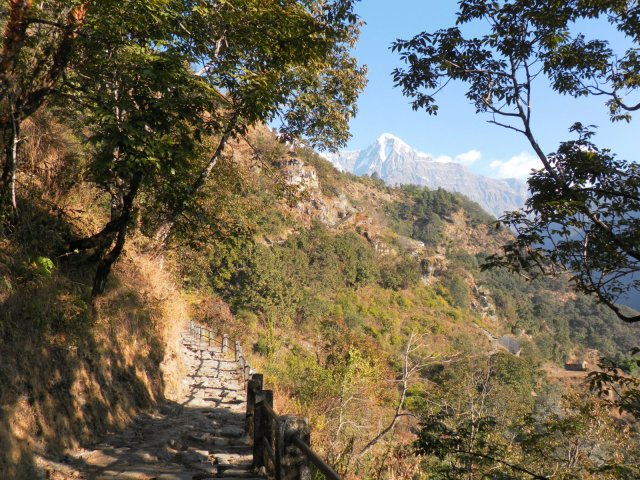
My Own Search for Happiness
Happiness – or at least the ill-starred search for it – seems to very nicely explain the entire painful span of human history, and certainly the primary impulse in almost every individual life. My own early years came under the spell of Hemingway’s persuasive novels, his full immersion in bullfights, big game hunts, trawling the high seas for marlin, war journalism and perilous undertakings, and I began my own peregrinations with a kind of seaside romance with adventure and travel. Hemingway’s later suicide was perhaps a powerful and damning obituary to all this – but undeterred I forged on.
In Mexico, I finally attended a bullfight and watched the ritual slaughter of nine magnificent animals – but left feeling amazed at what seemed the depravity of my kind and the sense that the era of the Christians and the lions, its savagery, was still very close. The pathos and courage of the bulls scalded my heart, while all around me the crowd roared their approval and chanted “Ole! Ole!” just as they did in Hemingway’s novels – and so here we parted company.
Travel too failed to erase that fretfulness of the searching heart. I wandered from place to place, a rite of passage for those of us born in remote places, toting always the ineradicable personal baggage of purposelessness and discontent, the Greek poet Cavafy’s pronouncement ringing in my mind: “No ship exists to take you from yourself!”
Later, taking refuge from a London winter inside the Wimbledon Public Library, I stumbled upon Albert Camus, existentialism and the myth of Sisyphus – the Greek anti-hero condemned by the gods to endlessly push a boulder up a mountain, only to see it roll back down each time he reached the top. “His scorn of the gods, his hatred of death, and his passion for life won him that unspeakable penalty in which the whole being is exerted toward accomplishing nothing. This is the price that must be paid for the passions of this earth,” writes Camus.
It seemed an exact metaphor of my own life. Camus’ essay was all about happiness – how to find it in a world wherein we struggle, suffer and die, without finding any real meaning in our existence or without someone to explain this condition to us. But “one does not discover the absurd without attempting to write a manual of happiness…. Happiness and the absurd are two sons of the same earth,” he writes.
“He knows himself to be the master of his days. At that subtle moment when man glances backward over his life, Sisyphus returning toward his rock, in that silent pivoting he contemplates that series of unrelated actions which becomes his fate, created by him, combined under his memory’s eye and soon sealed by his death…. Each atom of that stone, each mineral flake of that night-filled mountain, in itself forms a world. The struggle itself toward the heights is enough to fill a man’s heart. One must imagine Sisyphus happy.”
I was content with this, finally at ease with purposelessness and the utter insignificance of my life, and feeling now unburdened by possessing this knowledge. But philosophy is often at odds with the deeper purpose of our soul, and the sense of other imminent discoveries stirred inside me. We seem to attract like a magnet the people, books, clues, experiences we next need – or are they gifted to us? – and now I was introduced to Eastern spirituality.
In New Zealand, a summer long ago, sitting on a remote beach in the Queen Charlotte Sounds and soothed by a wide blue canopy of sky and an endless prospect of water, I tried my first attempt at meditation. Simply sitting, simply “being,” seemed strange yet also familiar, a different kind of void from Camus’ emptiness. I was peering into a great silence and wondering what lay waiting, and there came the sense of remembering something again, as though from the long strand of other lives.
Now, years later, for me happiness is simply an achievement of consciousness – not a certain person or a certain place, not in what I possess or in what I do, not in penury or plenty, not in anything external at all. The prolonged practice of meditation has brought an increasing desirelessness, freedom from expectation, inner sufficiency and life simplicity. It disentangles us from the cultural imperatives of success, wealth, acquiring, ambition – the great pervasive lies about happiness – and helps us to recognize and travel our own very special life path, alone when necessary and always with courage.
In late 1980 I had the ultimate good fortune to meet a living spiritual master. The Indian teacher Sri Chinmoy took me upward and onward to new levels, cleared away many of the blocks and misunderstandings in my practice, gave me glimpses of a delight and freedom that I came to understand were experiences of my own soul. And he kindled within me a love of God – no mean feat given my agnostic family tradition – and charted out a path, the steps I have now chosen to take.
For those seeking happiness – “Everyman” – and starting out on their own journeys of discovery, The Jewels of Happiness by Sri Chinmoy will provide a wonderful map and an inspirational, tireless companion to point the way home.
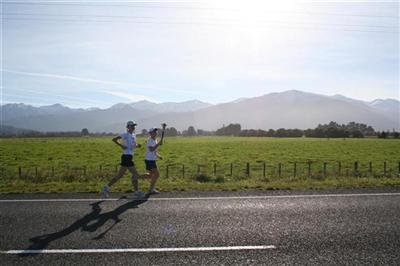
Happiness, Self transcendence … and muskrats?
I feel always just a little guilty when I order books online. How are fine, independent bookstores going to stay in business, enabling one to browse their fascinating shelves on rainy weekend afternoons, if everyone is buying books on the wretched interwebs?
I salve my conscience by only buying online occasionally and then only from sites that donate all profits to a charity that I support anyway. Within these parameters I can then fully and indulgently enjoy the great pleasure involved in buying books online: arriving home and finding, unexpectedly, a book in the letterbox.
Never having been a particularly materialistic child, I did not experience the frenzy of delight that I read about of greedy children creeping from their beds at un-Godly hours of Christmas morning to fall lustfully upon their Christmas gifts, but I think I understand a little of their pleasure when I get home from a day at work and find, arrived from distant continents as if by aerial reindeer, a book-shaped parcel in my letterbox.
So when I started reading Pilgrim at Tinker Creek by Annie Dillard, I was already well disposed towards it, having received it as if from Saint Nicholas himself, and excitedly borne the package that it arrived in from distant England into my house and expectantly unwrapped it.
In the reading, it proved equal to my anticipations.
Indeed the book will bear rereading and has already provided a range of facts and startling images to ponder and share – the 6,000 miles of root hairs of a winter ryegrass plant; the comparison of acres of rats and acres of tulips; the two hundred and twenty-eight muscles in a caterpillar’s head; the 12 thousandths of an ounce of starlight …
It is a fascinating book. They refer to Annie Dillard, apparently, as the ‘heir of Thoreau’. Despite not being an American, I have indeed read Walden several times and a smattering of Thoreau’s other works. I would quietly suggest that the disciple has surpassed the master.
I like her writing style but I admit without any embarrassment that there are passages that I do not understand, where I am completely at a loss as to what certain sentences or paragraphs mean.
Pilgrim at Tinker Creek has joined the pile of books on the shelf above my bed – the books I am currently reading: Mungo Park’s 1816 Travels in the Interior of Africa, the seventh-century writings of Saint Isaac of Nineveh, a book on the nature of pre-agricultural human society and – The Jewels of Happiness by Sri Chinmoy. A varied bunch.
The final chapter of The Jewels of Happiness is entitled ‘Self-transcendence’.
Throughout his life, Sri Chinmoy conveyed his profound insights into, and teachings on, the nature of humanity and divinity in a variety of ways – in a painting, in a drawing, in some extreme or humble athletic endeavour. And in writing – poetry and prose – of course. His mastery of the English language was profound – a limpid, crystalline style, never less than simple and with a profound balance and symmetry.
If there are things in his books that I do not fully understand, it is not a matter of language but of the inadequacy of the human mind faced with clear and first-hand descriptions of – for example – the distinction between infinity and eternity.
There is, however, one word that appears in Sri Chinmoy’s writings which, I have discovered, seems to baffle many of even the most erudite readers – ‘self-transcendence’. This word indeed appears in his writings frequently because it is one of the most central concepts in his thought.
Admittedly, some readers have encountered this word not in a book but in a situation which provides rather less context – a t-shirt.
Some of Sri Chinmoy’s writings have migrated from the bookcase to the wardrobe. It is unusual to compete in a public running race without seeing a t-shirt printed up on the back with an inspirational poem by Sri Chinmoy. In such a poem the word ‘self-transcendence’ often appears, and the front of such a t-shirt will have on it the name and details of some race organised by the Sri Chinmoy Marathon Team. All such races occur under the moniker ‘self-transcendence’: the Self-transcendence 6-day Race, the Self-transcendence Half-marathon, the Self-transcendence 2-mile Race.
For people whose introduction to the word is in isolation on the front of a t-shirt, it seems to be too unfamiliar and have too many syllables for easy comprehension.
After twenty years of reading Sri Chinmoy’s writings, the word seems straightforward enough to me.
– * –
One of the passages in Pilgrim at Tinker Creek which I found particularly appealing was the chapter called ‘Stalking’ in which Annie Dillard describes her experiences watching the elusive muskrats that inhabit Tinker Creek.
She describes the lengths to which she goes and the techniques she employs to stalk and observe these furry aquanauts, and the joy she gets from doing so.
After several minutes of rummaging about in the grass at my side, he eased into the water under the bridge and paddled to his den with the jawful of grass held high, and that was the last I saw of him.
In the forty minutes I watched him, he never saw me, smelled me or heard me at all. When he was in full view of course I never moved except to breathe. My eyes would move, too, following his but he never noticed. I even swallowed a couple of times: nothing. The swallowing thing interested me because I had read that, when you are trying to hand-tame wild birds, if you inadvertently swallow, you ruin everything. The bird, according to this theory, thinks you are swallowing in anticipation, and off it goes. The muskrat never twitched. Only once, when he was feeding from the opposite bank about eight feet away from me, did he suddenly rise upright, all alert and then he immediately resumed foraging. But he never knew I was there.
I never knew I was there, either. For that forty minutes last night I was as purely sensitive and mute as a photographic plate; I received impressions, but I did not print out captions. My own self-awareness had disappeared; it seems now almost as though, had I been wired with electrodes, my EEG would have been flat. I have done this sort of thing so often that I have lost self-consciousness about moving slowly and halting suddenly; it is second nature to me now. And I have often noticed that even a few minutes of this self-forgetfulness is tremendously invigorating. I wonder if we do not waste most of our energy just by spending every waking minute saying hello to ourselves. Martin Buber quotes an old Hasid master who said, “When you walk across the fields with your mind pure and holy, then from all the stones, and all growing things, and all animals, the sparks of their soul come out and cling to you, and then they are purified and become a holy fire in you.” This is one way of describing the energy that comes, using the specialized Kabbalistic vocabulary of Hasidism.
I have tried to show muskrats to other people, but it rarely works. No matter how quiet we are, the muskrats stay hidden. Maybe they sense the tense hum of consciousness, the buzz from two human beings who in the silence cannot help but be aware of each other, and so of themselves.
It is interesting that, in this passage, Annie Dillard indicates that it is in the forgetting of self that rapture is found. This is the insight of all of history’s – and pre-history’s – spiritual masters.
It is only when we break down the tiny confines of the quotidian, the boundaries that our mind constructs and our little ego reinforces and defends, that we enter into the boundless and unconfined regions of the soul, the effulgent light of divinity where all division and all duality is lost in the bliss of oneness.
As Jesus the Christ put it with His usual tangible image – ‘… unless a grain of wheat falls to the ground and dies, it remains only a single seed. But if it dies, it brings forth much fruit.’
This then is the final purpose, the ultimate reaches, of self-transcendence – where the self itself is transcended, where our consciousness breaks out beyond the boundaries and limitations of the mundane ego – the self, which, as Annie Dillard says, spends its time saying hello to itself – and into the domain of oneness, of unitary existence beyond all distinctions where all is indeed bliss – being, consciousness, bliss and nothing else.
In the meantime…
Life is intricate, as Annie Dillard points out, and it has a way of repeating itself and rehearsing itself at ever-expanding or ever-diminishing levels of reality. Thus, in tiny mundane ways, we rehearse that great drama of transcendence.
In a multitude of ways we can transcend the limits of our self. Today we are selfish; tomorrow we can be less so. Today we are harsh; tomorrow we can be gentle. Today we are judgemental; tomorrow we can be understanding. All along we can take little steps – little steps of self-transcendence.
If we apply this philosophy to the field of physical activity we arrive at an idea like this:
‘But remember what your previous time was, and try to make it one minute better. If you did the marathon in seven hours this time, try next year to do it in 6.59.’
Our Sweetest Oneness, Agni Press, NY, 2012, p. 56
And, just as satisfaction is found in the highest reaches of transcending the self, so too it is found in these little steps.
– * –
In 2008 I competed in the Self-Transcendence 10-day Race in New York City. It was the second time I had attempted this race. One runs as far as one can – in ten days.
Sri Chinmoy once said:
‘… we are always aiming at doing difficult tasks. Then only can we value our achievement. Otherwise, if everything is easy, like drinking water, then nobody values it. But to climb up the Himalayas is the most difficult task, and we do value it.’ [[From the book Our Sweetest Oneness by Sri Chinmoy, Agni Press, NY, 2012, p. 53]]
There may be those for whom it is not so, but, for me, running for ten days is – a difficult task!
The first time I ran this race – in 2006 – I managed to cover 819 km.
On my second attempt – in 2008 – as the race proceeded, once again the difficulties descended – difficulties of the body, difficulties of the mind.
It is a strange experience. At one level, hard and painful but at a deeper level one of profound satisfaction – a satisfaction grown from the experience of self-transcendence. Each step takes one beyond one’s own perceptions of one’s possibilities.
One other aspect of the race added further satisfaction.
Despite being held in the middle of the most metropolitan of metropolises, the race is, unexpectedly, an experience of the closeness of Nature. While the course does skirt a motorway it also runs alongside a lake. The trees shelter the runners, the birds sing for them, the rain blesses them, the Moon shines her light on their slow progress, the lake water offers the hope of grace and life. The runners share the course with flocks of geese who fly in in trailing skeins to graze on the grass and add their wild souls to the experience.
‘If peace is not
In Nature’s beauty,
Then where is it, where?’ [[Sri Chinmoy wrote in Seventy-Seven Thousand Service-Trees, Part 49, number 48,327]]
During the race in 2008, Nature blessed us with an abundance of her rain.
Other runners, I think, did not appreciate running in the rain, but I revelled in the extra sense of wildness it brought to the experience.
Often during the long, soggy nights as I ran slowly along, I would see furry creatures emerging from the reeds beside the lake to nibble delicately at the grass. Coming, as I did, from an island inhabited entirely by birds, I had no idea what these creatures were. I was, however, full of happiness to see them and of goodwill towards them. “Hello Mr Rat,” I would mutter quietly to them as I passed and they, in turn, showed no fear of the dim figure slowly moving through the night on his pilgrimage.
They were a rather russet brown and it was only after reading Annie Dillard and searching for a picture of her friends that I realised who those furry fellows in the night had been.
On my second attempt at the Self-transcendence 10-day Race I managed 830 km.
And I saw muskrats.


